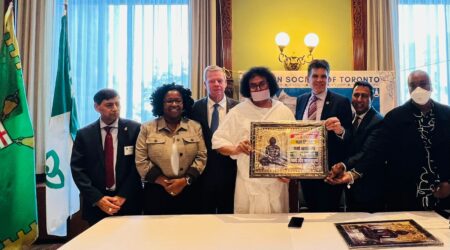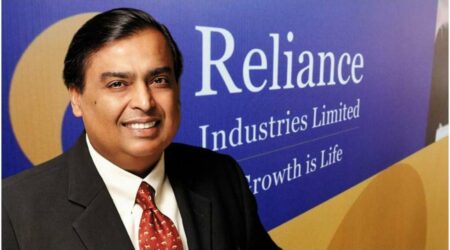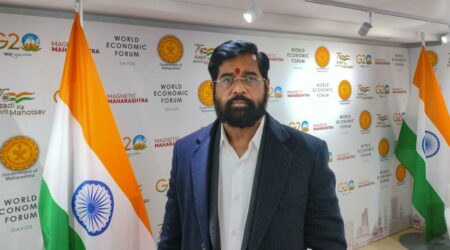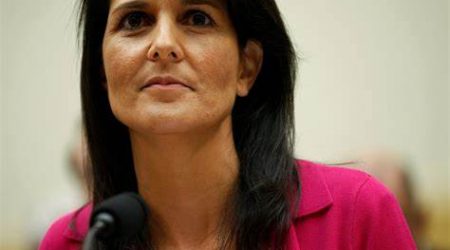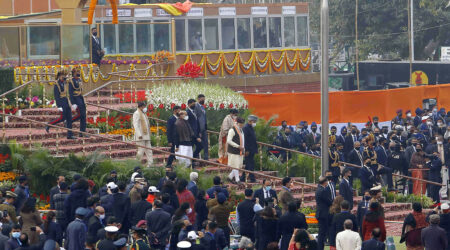United Nations: As the UN General Assembly adopted by consensus a resolution that requires the 193-member body to convene whenever a veto is cast by a permanent member of the Security Council, India on Tuesday voiced “regret” over the lack of inclusivity in tabling the resolution and said it has “serious concerns” about such “take it or leave it initiatives” that do not take into account concerns of the wider membership.
The UN General Assembly adopted by consensus, without a vote, the resolution “Standing mandate for a General Assembly debate when a veto is cast in the Security Council” by any permanent member – the US, Russia, China, Britain and France.
Tabled by Liechtenstein together with over 70 cosponsors, including the US, the resolution “decides that the President of the General Assembly shall convene a formal meeting of the General Assembly within 10 working days of the casting of a veto by one or more permanent members of the Security Council, to hold a debate on the situation as to which the veto was cast, provided that the Assembly does not meet in an emergency special session on the same situation.”
India’s Deputy Permanent Representative to the UN Ambassador R Ravindra, in the Explanation of Vote, said that New Delhi regrets the “lack of inclusivity” in the manner in which the resolution was put forth. “We have serious concerns about such ‘take it or leave it’ initiatives which do not make a genuine effort to take into account the perspectives and concerns of the wider membership,” he said.
Earlier this month, the US, citing Russia’s “shameful pattern of abusing its veto privilege” over the years, said it was co-sponsoring the UNGA resolution that would automatically convene a meeting of the General Assembly after a veto has been cast in the Security Council by any of the five permanent members.
In February, just a day after Russia launched its military operation in Ukraine, a US-sponsored UN Security Council resolution that would have deplored in the strongest terms Moscow’s “aggression” against Ukraine failed to pass since Russia used its veto.
Outlining the areas of “concern” that India has on the so-called Veto initiative, Ravindra said that a substantive and important resolution such as this, with profound long-term ramifications on the relationship between two major organs of the UN, their mandates, and internal working dynamics, demands much more serious, in-depth, and inclusive deliberation than was allowed by the movers of this text.
“By bringing veto to the UNGA as a standalone issue, on which the remaining membership has no de facto say and by implying that this issue needs to be addressed first, above all other substantive issues of UNSC reform, is giving disproportionate importance to one issue over all others. This flawed approach is, therefore, an aberration,” he said.
Ravindra stressed that as a delegation that has piloted the need for reformed multilateralism, India fully supports any initiative that genuinely furthers the objective of achieving meaningful and comprehensive reform of the key elements of the global multilateral architecture.
He said that the privilege of using the veto has been vested to only five member states. “The UNGA can do very little about it as effectively the P-5 have a veto over the veto. As rightly called out by our African brothers and sisters, it goes against the concept of sovereign equality of states and only perpetuates the mindset of the Second World War, to the victor belongs the spoils. Either all nations are treated equally in context of voting rights or else the new permanent members must also be given the veto.”
India currently sits in the UN Security Council as a non-permanent member for a two-year term that will end this December. The G4 nations of Brazil, Germany, India and Japan have asserted that the Security Council has failed to fulfill its responsibility to maintain international peace and security due to the use of the veto by its permanent members and this issue requires profound and serious discussions.
Ravindra said “our leaders have repeatedly tasked us with delivering early and comprehensive reform of the Security Council – a task, which over years of text-less, fruitless deliberations in the IGN, remains not only unfulfilled but blocked by those perpetuating the outdated status quo. In effect, a vocal minority of nay-sayers have held the entire process of UNSC reform hostage over the last four decades.
“The only way to begin to remedy what ails the Security Council is to make it more representative, credible and legitimate by including more underrepresented voices – including from developing countries and from Africa.”
“When a group of pro-reform member states, including India, had moved a similar such initiative nearly a decade ago, which also called for an improvement in the working methods of the Council, we were accused of promoting a piecemeal approach to UNSC reform,” he said.
“It is therefore ironical that the same set of Member States who argue vociferously against ‘piecemeal reform’ in the IGN, are today themselves supporting a piecemeal initiative, which ignores the root cause of the problem. We, therefore, hope that other piecemeal efforts focusing on aspects of category of membership and working methods of the Council would be treated without any double standards and with a similar yardstick in future,” he said.
India further asserted that all five permanent members have used the veto over the last 75 years to achieve their respective political ends.
He voiced concern that the provisions of the resolution also tend to relitigate the provisions of the UN Charter. “This resolution entails structural changes in the relationship between the General Assembly and the Security Council, which will impact the mandates and independence of these two Charter bodies. It will also have an effect on the internal decision-making dynamics of the Council.”
He said the proponents of the resolution claim that the ‘automaticity’ of the standing mandate is meant to ’empower’ the General Assembly.
“Mr. President, we fail to understand – how can removing the discretion and decision-making ability of the PGA and the membership empower the GA? There are already mechanisms in place, which enable the membership of the GA to decide on an ’emergency basis’ to convene discussions or even take action on issues that reach a stalemate in the Security Council. We need not add an ‘automatic’ invocation of another mechanism by rewriting the existing rules,” he added.




